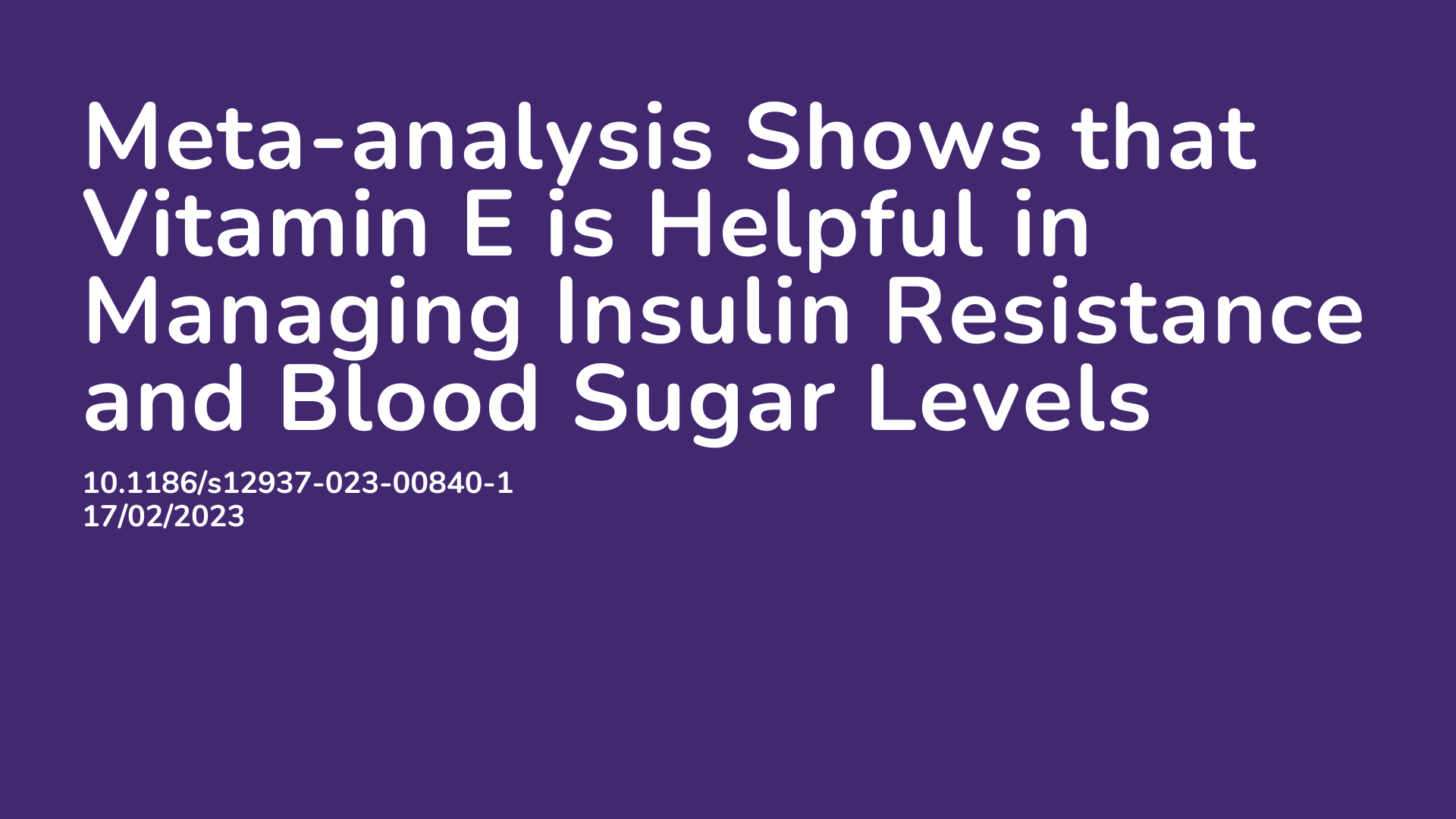Summary:
Research concerning vitamin E’s role in insulin resistance and blood sugar levels is currently inconsistent and the last systematic review published in this area in 2014 reached inconclusive results. This paper is an updated meta-analysis on vitamin E’s role in insulin resistance and diabetes. A total of 38 randomised controlled trials with diabetic patients were included. The results showed that vitamin E intake significantly reduced blood glucose levels in studies where vitamin E was administered for more than 10 weeks and that it had beneficial effects in improving insulin resistance.
Abstract:
Since a 2014 meta-analysis, several randomized controlled trials (RCTs) evaluating the effect of vitamin E intake on glycemic indices and insulin resistance in adults with diabetes have reached inconsistent conclusions. Therefore, we updated the previous meta-analysis to summarize the current evidence in this regard. Online databases including PubMed, Scopus, ISI Web of Science, and Google Scholar were searched to identify relevant studies published up to September 30, 2021, using relevant keywords. Random-effects models were used to obtain overall mean difference (MD) comparing vitamin E intake with a control group. In total, 38 RCTs with a total sample size of 2171 diabetic patients (1110 in vitamin E groups and 1061 in control groups) were included. Combining the results from 28 RCTs on fasting blood glucose, 32 RCTs on HbA1c, 13 RCTs on fasting insulin, and 9 studies on homeostatic model assessment for insulin resistance (HOMA-IR) showed a summary MD of -3.35 mg/dL (95% CI: -8.10 to 1.40, P = 0.16), -0.21% (95% CI: -0.33 to -0.09, P = 0.001), -1.05 µIU/mL (95% CI: -1.53 to -0.58, P < 0.001), and -0.44 (95% CI: -0.82 to -0.05, P = 0.02), respectively. This indicates a significant lowering effect of vitamin E on HbA1c, fasting insulin and HOMA-IR, while no significant effect on fasting blood glucose in diabetic patients. However, in subgroup analyses, we found that vitamin E intake significantly reduced fasting blood glucose in studies with an intervention duration of < 10 weeks. In conclusion, vitamin E intake has a beneficial role in improving HbA1c and insulin resistance in a population with diabetes. Moreover, short-term interventions with vitamin E have resulted in lower fasting blood glucose in these patients. This meta-analysis was registered in PROSPERO with code CRD42022343118.
Article Publication Date: 17/02/2023
DOI: 10.1186/s12937-023-00840-1



